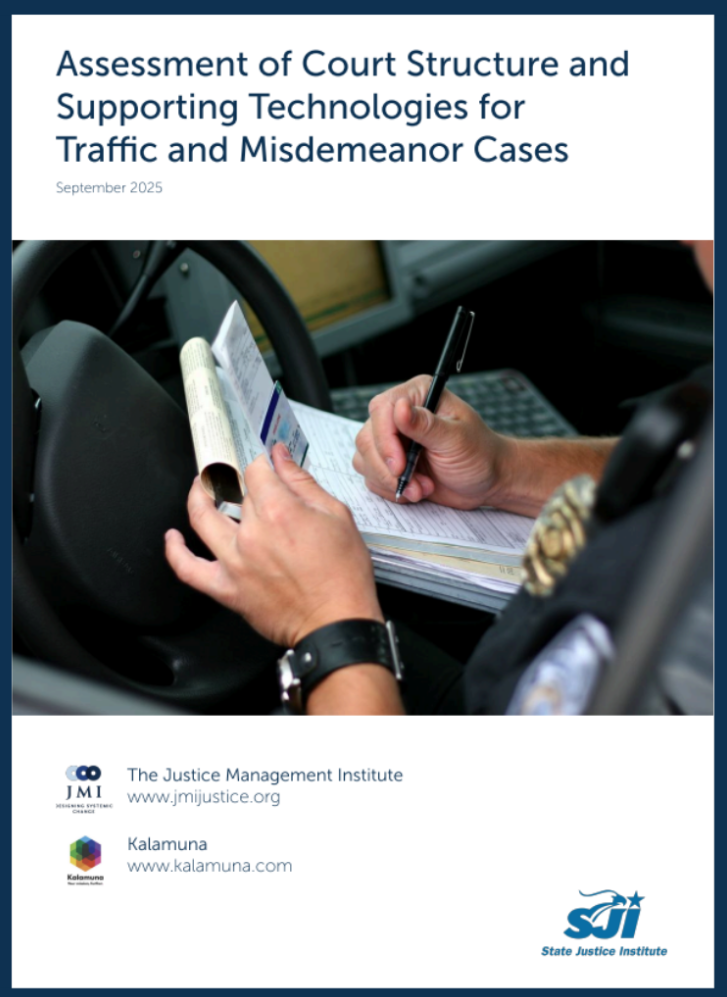Every year, the equivalent of more than 14% of the U.S. population has a traffic or misdemeanor case. While many consider justice involvement to be a phenomenon that does not impact their own lives, or the lives of those around them, the reality is that most U.S. adults have either interacted with the justice system at some point in their lives, or know someone who has. Still, navigating even these commonplace offenses creates undue strain on individuals and courts, as in-person appearances must be made to negotiate a case; requiring scheduling court visits around work schedules or childcare, determining transportation for those without consistent access to a car, and increasing workload on court staff.
While the COVID-19 pandemic encouraged the implementation of solutions such as virtual hearings and other avenues to navigate the legal system virtually, these avenues often remain dated or difficult to use, and frequently do not provide relief to court staff workloads. Though remote work and telecommunication vastly increased across the country over the last 5 years, court systems have not taken full advantage of these innovations.
In late 2024, the Justice Management Institute (JMI) and Kalamuna received a strategic initiatives grant from the State Justice Institute to develop a joint project aimed at expanding and streamlining the use of online case resolution (OCR). OCR aims to enable individuals who are arrested or issued citations for traffic or misdemeanor cases to easily navigate and manage their cases online and (with their lawyers as needed) to conduct transactions, plea negotiations, and resolve cases without physically appearing in court. Meanwhile, for courts and prosecutors, OCR reduces workload and time, as cases can be managed online, including pretrial and post-adjudication transactions, as well as court hearings.
Read the full article here: OCR Assessment | JMI Justice
Download the report here: OCR-Assessment-Report_FIN4.pdf


